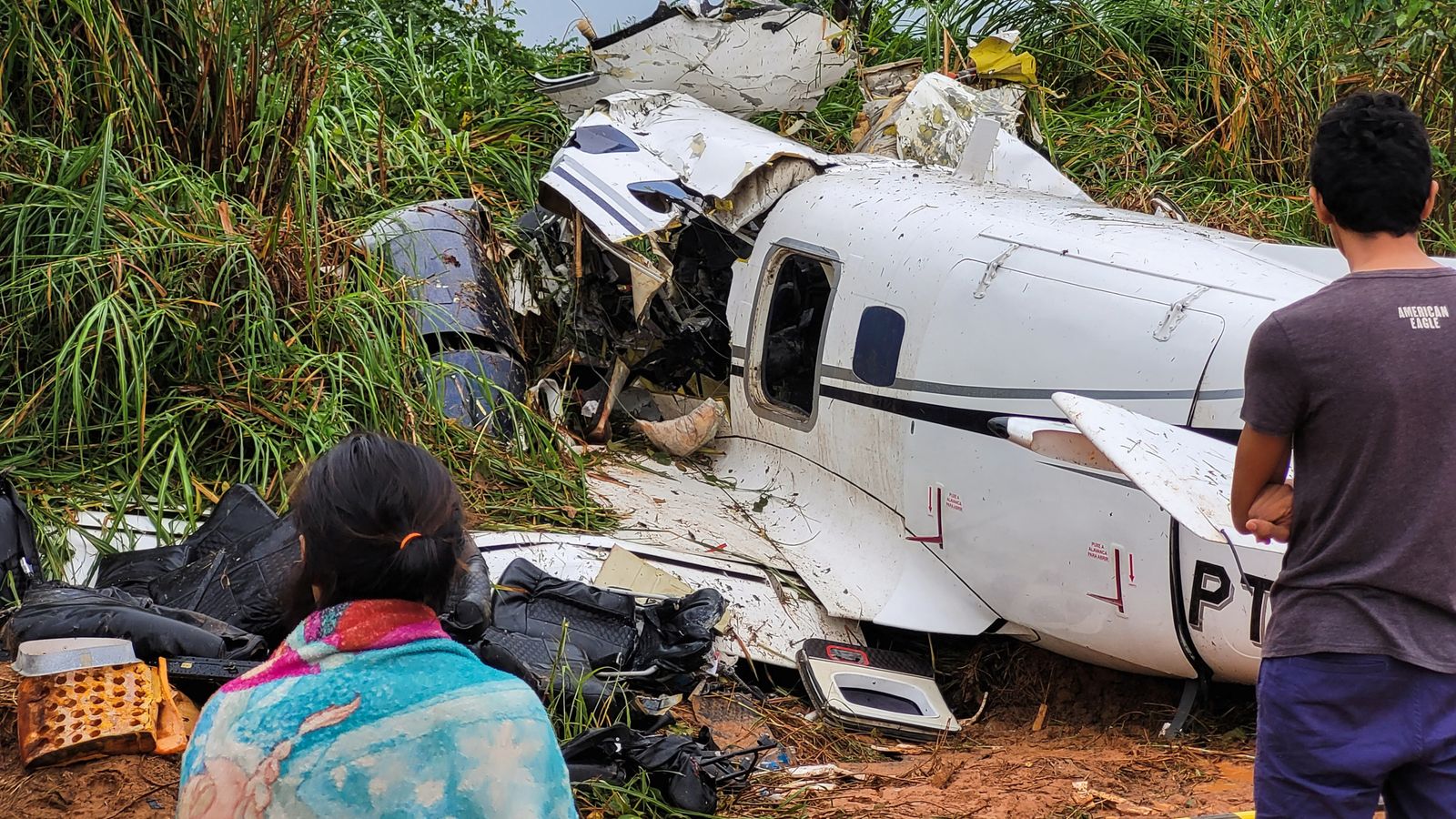Impact of Plane Crashes on Brazilian Society: Plane In Brazil Crash

Plane crashes in Brazil, while thankfully infrequent, have a profound impact on the nation’s social fabric, economic well-being, and political landscape. These tragedies trigger a cascade of responses, from public mourning and economic losses to changes in aviation regulations and heightened media scrutiny.
Social and Emotional Impact
Plane crashes in Brazil are not merely accidents; they are deeply felt events that leave a lasting mark on the collective psyche. The loss of life, often involving multiple individuals, evokes a profound sense of grief and solidarity across the nation. The impact extends beyond the immediate families of the victims, reaching communities, workplaces, and even the broader society.
- Public mourning is a powerful response to plane crashes. Brazilians gather to pay their respects, offering condolences, flowers, and prayers. These displays of collective grief underscore the shared sense of loss and the human connection that transcends individual differences.
- The emotional toll on families and communities is immense. Survivors grapple with the trauma of losing loved ones, facing the practical challenges of rebuilding their lives, and coping with the psychological scars of the event. Communities rally around affected families, offering support, comfort, and practical assistance.
- Plane crashes often lead to public memorials and commemorations, serving as reminders of the fragility of life and the importance of safety. These events offer an opportunity for reflection, remembrance, and a renewed focus on aviation safety.
Economic Consequences, Plane in brazil crash
Plane crashes have significant economic consequences, impacting not only the aviation industry but also related sectors and the national economy. The immediate impact includes the loss of human capital, disruption to transportation networks, and the cost of rescue and recovery operations.
- The loss of life in a plane crash represents a loss of human capital, impacting families, businesses, and the national workforce. The economic contributions of the victims, including their potential future earnings, are lost, creating a ripple effect through the economy.
- Plane crashes disrupt transportation networks, affecting passenger and cargo movements. This disruption can lead to delays, cancellations, and increased costs for businesses and travelers, impacting tourism, trade, and economic activity.
- The cost of rescue and recovery operations, including medical care, investigation, and legal proceedings, adds to the economic burden associated with plane crashes. These expenses are often borne by airlines, insurance companies, and the government, impacting their financial resources and potentially leading to higher airfares or reduced investments.
Political and Regulatory Responses
Plane crashes in Brazil often lead to calls for greater accountability and stricter aviation regulations. These events prompt public debate, legislative action, and changes in safety protocols, aimed at preventing future tragedies.
- Plane crashes can spark public outrage and demand for stricter regulations. The government is often under pressure to respond to these demands, leading to investigations, policy reviews, and new safety measures.
- These tragedies can also lead to changes in aviation regulations, including stricter safety standards, enhanced pilot training, and improved aircraft maintenance protocols. These changes aim to improve safety and reduce the risk of future accidents.
- The political landscape can be influenced by plane crashes, as the government faces scrutiny and accountability for its role in aviation safety. Public pressure can lead to changes in leadership within aviation authorities or the implementation of new safety initiatives.
Media Coverage and Public Perception
Media coverage plays a crucial role in shaping public perception of plane crashes, influencing public discourse and shaping responses to these events.
- Media coverage can amplify public grief and outrage, drawing attention to the human cost of plane crashes and prompting calls for action. This coverage can also influence public opinion regarding the causes of the accident and the adequacy of safety measures.
- The media’s role in disseminating information about plane crashes can be both beneficial and challenging. While providing vital information, it can also contribute to misinformation or speculation, impacting public trust and potentially hindering investigations.
- Public perception of plane crashes is shaped by the media’s portrayal of the events, influencing public sentiment and driving political and regulatory responses. This underscores the importance of accurate and responsible reporting in ensuring a balanced and informed public discourse.
Plane in brazil crash – The news about the plane crash in Brazil is super tragic, man. It’s hard to imagine what the families are going through right now. Reminds me of how much we take things for granted, like watching Kenny Pickett throw a touchdown for the Eagles here.
It’s a reminder to appreciate every moment, you know? Anyway, hopefully, we can all learn from this tragedy and be more mindful of our own safety and the safety of others.
The news about the plane crash in Brazil is super tragic, man. It’s like, you never know what can happen when you’re up in the air. Reminds me of how brave journalists like linsey davis are, risking their lives to get the story out there.
It’s a tough job, but someone’s gotta do it. Anyway, back to the crash, hopefully they find out what caused it soon so something like this doesn’t happen again.
